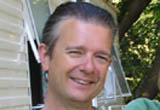 Consider the word refuge: a place offering protection from danger. It’s a powerful noun, strong connotations of safety and security, of haven or harbour. Consider somebody seeking such protection: a refugee.
Consider the word refuge: a place offering protection from danger. It’s a powerful noun, strong connotations of safety and security, of haven or harbour. Consider somebody seeking such protection: a refugee.
I have a picture of the Syrian city of Homs after the spring 2012 offensive. The city is rubble. The only living thing is a hawk, a lone wisp in the blue sky. If the picture were in black and white it could be Dresden or Hiroshima. It is a city obliterated. For civilians facing such devastation the only sane option is to flee.
Last spring, I was on the eastern Greek Island Lesbos with a journalist colleague from the BMA. We were working on a feature, spending time with MSF doctors providing health care to refugees in the Moria Reception and Identification Centre. We also visited MSF’s mental health clinic in the island’s capital, Mytilene. Some of the people we met had come from Syria. We heard about their struggles to keep well: the ease with which infection passed through the camps; the difficulties keeping clean—particularly for women and children for whom visits to the toilets and showers were risky, especially after dark. We heard about the health complications of sexual violence, about malnutrition and scabies. We heard about the psychological impact of war and displacement: the hallucinations; the scorching anxiety; the depression and numbness. And we heard how being held indefinitely in an overcrowded former barracks on eastern Lesbos—the monotony, the uncertainty, the listlessness and stagnation—further broke their health.
Before I left Lesbos, I sat for a while on a stony beach by the airport, looking across the Straits of Mytilene to Turkey. It was cold, overcast. Grey waves flopped on the beach. I could just see the outlines of coastguard boats, eyes out, I assumed, for refugees making the crossing in hopeless boats. Not a bad place to ponder the paradoxes of nationalism. Europe has been many things: slaughterhouse, beacon, tyrant-overlord. But it has also been a refuge. Experience of two world wars was bitter fuel for international humanitarian law, the refugee conventions and the human rights movement. Frail it is, this internationalism, and frail it always has been. Both idealistic and riven by realpolitik; buoyed by hope and hobbled by questions of jurisdiction and enforcement. But it was born of the moral conviction that what we share as human beings is more important than what divides us.
The press of people fleeing total war in Syria—and elsewhere—has struck at the heart of the project of European integration. It is a hard paradox that the arrival countries of southern Europe are the poorest, least able to deal with the numbers of people arriving. And that, with a few noble exceptions—Merkel’s Germany—the richer countries, consumed by their own political troubles, their own identity struggles, have largely turned their backs.
I am writing this at the end of Britain’s long agony over whether to leave the EU. It is done. We have left. But the struggle over which way we should look, what kind of nation we should be, is far from won. Are we narrow, insular and self-protecting, or do we look outwards, recognising what we share with strangers, seeking to provide, where we can, a place of refuge? As the doctors of MSF know, the outcomes of such a struggle will prove incalculable.
I am partial to water (bear with me). I was born on a houseboat. I spent a lot of my childhood aground on small boats in muddy creeks (which might account for my fondness for safe harbour, for refuge.) There was something of freedom in it, of a place without borders. It has been a while since I was in Moria. But I am writing this because the Greek defence minister has just announced plans to build a floating sea barrier off Lesbos. To put up borders on the un-bordered sea. And the news is sickening.
Julian Sheather is ethics manager, BMA. The views he expresses in his opinion pieces are entirely his own.
Competing interests: None declared.
